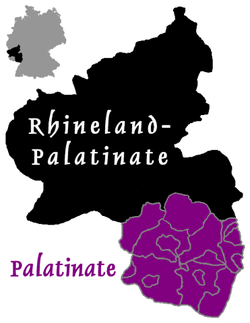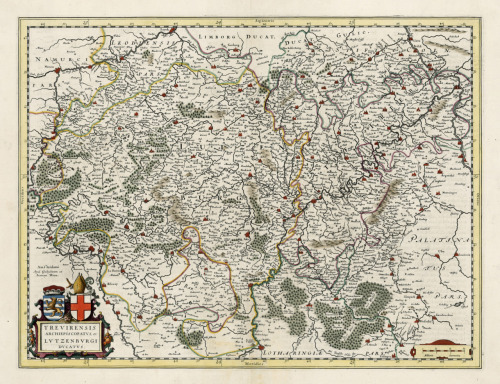pal·a·tine/ˈpaləˌtīn/
| Adjective: |
| |
| Noun: |
| |
| Synonyms: | palatal | |
source:https://www.google.com
Source-link:http://minerdescent.files.wordpress.com/2010/08/palatine-migration.jpg?w=640
MERCKEL FAMILY MIGRATION AND NAME HISTORY
The first of this family to come to America, arrived in the year 1710. They came as refugees from the German Palatine. Their trek to the New World had led them by way of Holland and England.
The first of this family to come to America, arrived in the year 1710. They came as refugees from the German Palatine. Their trek to the New World had led them by way of Holland and England.
The name was originally spelled Merkel or Merckel and pronounced in German as “Mare-kil”. The Palatines settled among, and intermarried with, the Dutch in Ulster County, New York. Here they soon were using the prevailing language which was Holland Dutch. (At Kingston church preaching was in Dutch until 1809).
In 1673, twenty-five years after the “Thirty Years War” ended in 1648, Louis XIV of France began his marauding expeditions for the purpose of exterminating the Protestant heretics. Destructive raids laid waste to the Palatine countryside. This ruthless pillage continued until 1688 when the French King himself entered the land “to make it a wilderness” as he declared.
The villages, towns and farms of the Rhine regions were pillaged and burned, and their inhabitants tortured, ravished or slain. Few escaped the country. Those who survived were spared further horrors when, in 1705, England, Holland, Sweden, and Prussia intervened and threatened reprisals unless this carnage ceased. The way of Spanish Succession followed (1701-1713) but it touched only lightly on the already devastated country.
Added to the horrors of the war, there came further to harass the unfortunate Palatines the unusually severe winters of 1703 and 1709. Vineyards and orchards were blasted by the cold. Birds froze on the wing, fires failed to warm the shivering populace. Also, there came ecclesiastical regulations that made still more unbearable the life of these “poor, protestant, Palatines.”
Added to the horrors of the war, there came further to harass the unfortunate Palatines the unusually severe winters of 1703 and 1709. Vineyards and orchards were blasted by the cold. Birds froze on the wing, fires failed to warm the shivering populace. Also, there came ecclesiastical regulations that made still more unbearable the life of these “poor, protestant, Palatines.”
Their only salvation lay in migrating to other lands. The first group of 41 (men, women and children) left for England by way of Holland in 1708. They were led by the Rev. Joshua Von Kocherthal, a Lutheran minister, whose wife and three children were among the refugees. In London, they petitioned Queen Anne for permission to sail to one of the British Colonies in America. Hearing of their extreme poverty the good Queen granted them each a shilling a day towards their sustenance until a decision was reached.
England desired to expand her frontiers in the New World, so transportation for “these honest and laborious Palatines” was arranged on the British ship “Globe”. A special act of naturalization made them “denizens of the Kingdom.” (It is perhaps for reasons of gratitude that some of their immediate descendants, in the days of the American Revolution, seemed to have Tories and British sympathies, even to the extent of moving to Canada.”
This first group of Palatines landed 60 miles up the Hudson River and built a town they called “Neuberg”, now called Newburgh, New York. Queen Anne supplied them with agricultural implements and foodstuffs for one year. In exchange, the Palatines were to supply lumber for the Royal Navy.
A year later, when pastor Von Kocherthal returned to England for additional aid, he found 3000 refugees there. They were living in tents on the Black Heath of London. The queen acceded to his wishes that they too be sent to America to join the others. This time a whole flotilla of vessels was needed. They sailed from London in January, 1710. Among the ships was the “Globe”, making it’s second crossing with Palatine refugees.
For months this fleet of sailing ships with human cargo was tossed about on the stormy winter’s sea. At least one ship was wrecked and 470 immigrants died during the voyage. Another 250 succumbed after landing in New York on the 14th of June, 1710. After a period of quarantine on Nutten (now Governor’s Island, they proceeded upriver and settled on both sides of the Hudson, above Neuberg (New Town).
As time passed, some of the settlers moved on into the Schoharie Valley of New York and into parts of Pennsylvania. In the next few years Palatines migrated to the new land. Some of the ships landed at New York and some at Philadelphia.
One of the towns settled on the Hudson’s west bank was West Camp (now Saugerties) near Kingston. Here the minister who worked with Pastor Von Kocherthal was Dominie Haeger of the Dutch Reformed Church. It is in the records of the Dutch Church at West Camp that we first find mention of the name “MERKEL”. It was here, on 26 Dec 1711, that a baby born on the ship “Globe” was baptized. It was Johan Adam Merkel, son of Fredrik Merkel and Barbara Alman. [Adam was actually born 10 Dec 1711 in West Camp, Albany, New York]
We have no record of all the names in that second massive migration of the Palatine refugees, but from the baptismal record we know that Fredrik Merkel and his wife, Barbara, arrived with them.
The Palatinate Forest (German: Pfälzerwald) is a low-mountain region in southwestern Germany, located in the Palatinate in the state ofRhineland-Palatinate. The forest is a designated nature park (German: Naturpark Pfälzerwald), equivalent Area of Outstanding Natural Beauty), covering 1,771 km² and its highest elevation is Mount Kalmit (673 m).
Together with the northern part of the adjacent Vosges Mountains in France it forms the UNESCO Biosphere reserve Palatinate Forest-Vosges du Nord. The Biosphere reserve is one of the biggest forests in Europe.
Source-link:http://en.wikipedia.org/wiki/Palatinate_forest
Below this source-link are a great set of maps:
Read the free e-book Authored by:Sanford Hoadley Cobb
cyber link(s) to more information specific to this subject:
http://www.tacitus.nu/historical-atlas/regents/germany/pfalz1.htm
http://www.irishpalatines.org/
www.palam.org
http://www.poughkeepsiejournal.com/projects/cultures/113004.shtml
www.cyndislist.com/germany/palatines
www.bernehistory.org/area_history/palatines.htm


